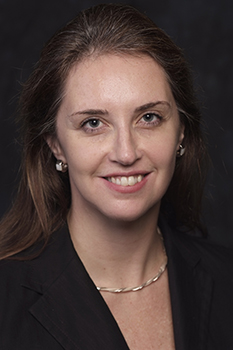Latest News Archive
Please select Category, Year, and then Month to display items
17 June 2020
|
Story Dr WP Wahl

The Division of Student Affairs (DSA) prioritises innovation to meet the challenges of food insecurity and malnutrition among students. To this end, several student volunteers and student governance structures are collaborating with the DSA on various initiatives.
During 2019, various conversations were held about the possibility of creating a health-promoting food environment at the UFS where students and staff are well informed and empowered to take appropriate action regarding their food and nutritional needs. These conversations resulted in an institutional strategy to address the food environment at the UFS. Student representatives serve on a technical committee that directs the implementation of this strategy. In this regard, several initiatives have already been launched.
Students from residences and other student communities have planted vegetable gardens on the Bloemfontein Campus with the assistance of KovsieACT and the Faculty of Natural and Agricultural Sciences. Students and staff are already harvesting and distributing vegetables to needy students every week. Measurements were put in place to continue this during the COVID-19 period. The following vegetables were planted: spinach, cabbage, beetroot, broccoli, cauliflower, and carrots.
Food parcels, donated by Tiger Brands and Gift of the Givers, are continuously handed out by DSA staff and student volunteers. In this regard, 540 food parcels have already been handed out on the Bloemfontein Campus during the COVID-19 period alone. During the same time, 117 students received food parcels on the Qwaqwa Campus. The innovation of this food parcel project rests on the fact that business, NPOs, UFS students, and DSA staff are collaborating to address food insecurity and malnutrition.
More collaborative initiatives will be implemented over the next 12 months. The DSA staff and students are already working with the Department of Dietetics and Consumer Sciences to create information packages about the preparation of low-budget nutritious meals.
Related article:
Vegetable tunnels established to continue the fight against food insecurity
CDS receives another international grant from the NIH
2015-12-11
 Dr Carla Sharp |
The Centre for Development Support (CDS) is partner to another international research grant from the National Institutes of Health (NIH) in the United States. The new project follows an earlier project funded by the NIH, which focused on the mental health of orphans and vulnerable children.
The new project is to focus on investigating possible improvements in the mental health and cognitive development of orphaned and vulnerable children aged between seven and eleven years, by means of improved community-based care in the Mangaung Township area in Bloemfontein. The project will stretch over three years and has a budget of approximately R10 million.
“We shall use the Mediational Intervention of Sensitizing Caregivers (MISC) approach and it will be applied by community-based organisations,” says Dr Deidre van Rooyen, Acting Director of the CDS.
MISC applied by caregivers has produced good results elsewhere in the world. “This is the first time MISC will be tested by community-based organisations,” says Prof Lochner Marais of the CDS, who is also the principal investigator in South Africa.
“In addition to working with four community-based organisations in Mangaung, Childline Free State will also be actively involved in the project,” Marais added.
The project is being conducted in collaboration with Dr Carla Sharp as principal investigator at the University of Houston, and Prof Michael Boivin (an international expert on MISC) at the Michigan State University. Dr Sharp was recently appointed visiting professor at the CDS.
“It is indeed a great privilege to be working with the CDS on yet another project,” Dr Sharp remarked, also noting that “the project is preliminary in nature and could evolve into a much bigger research project in future”.